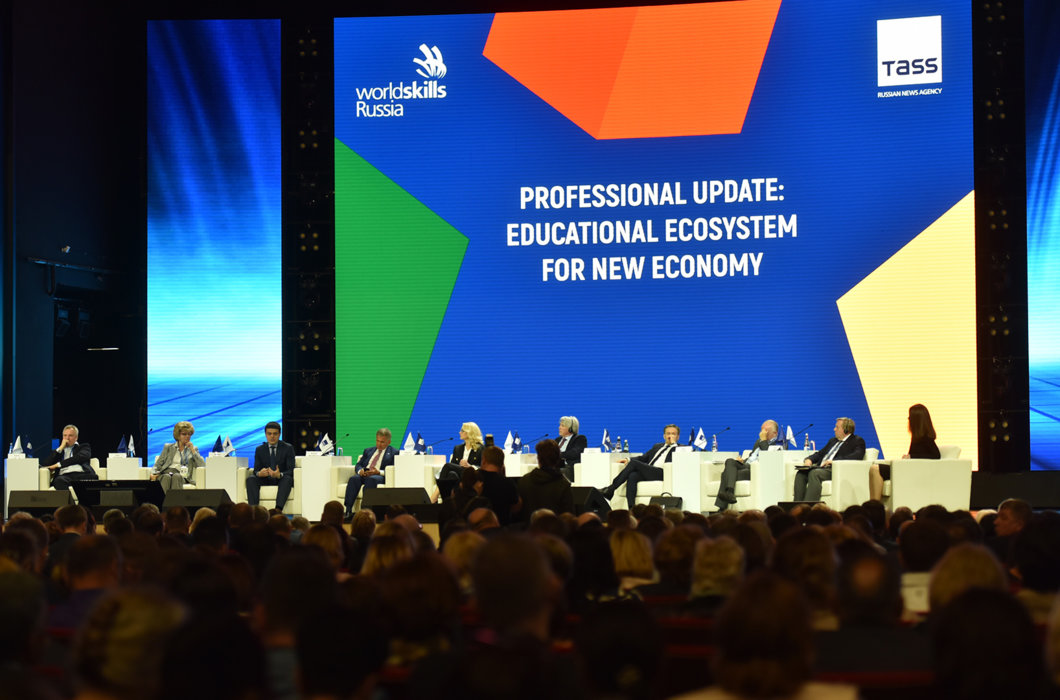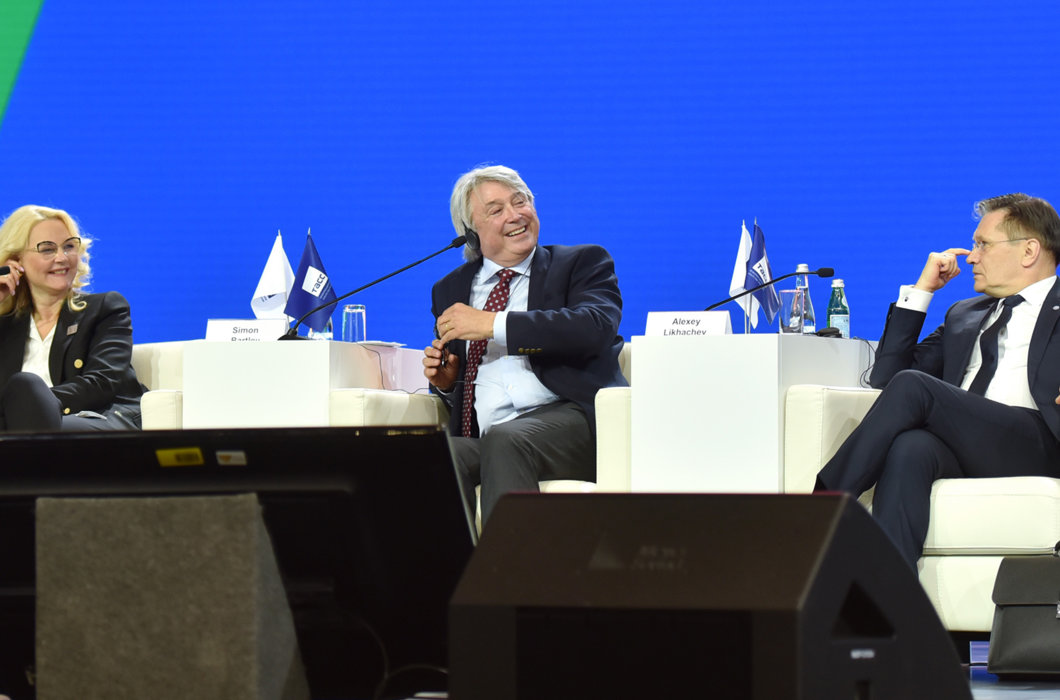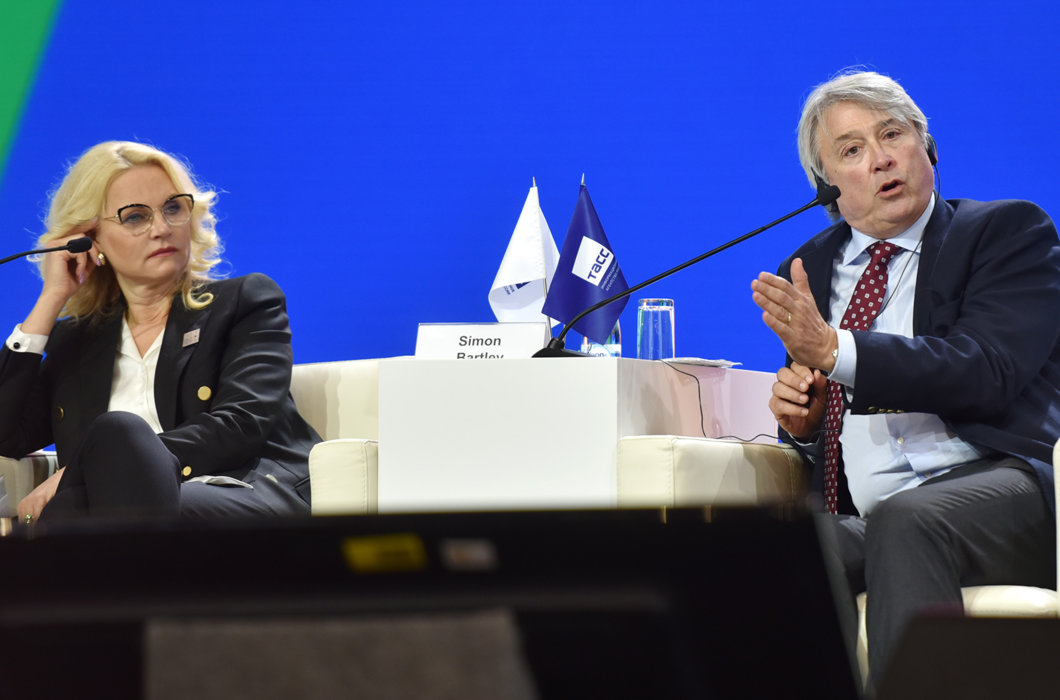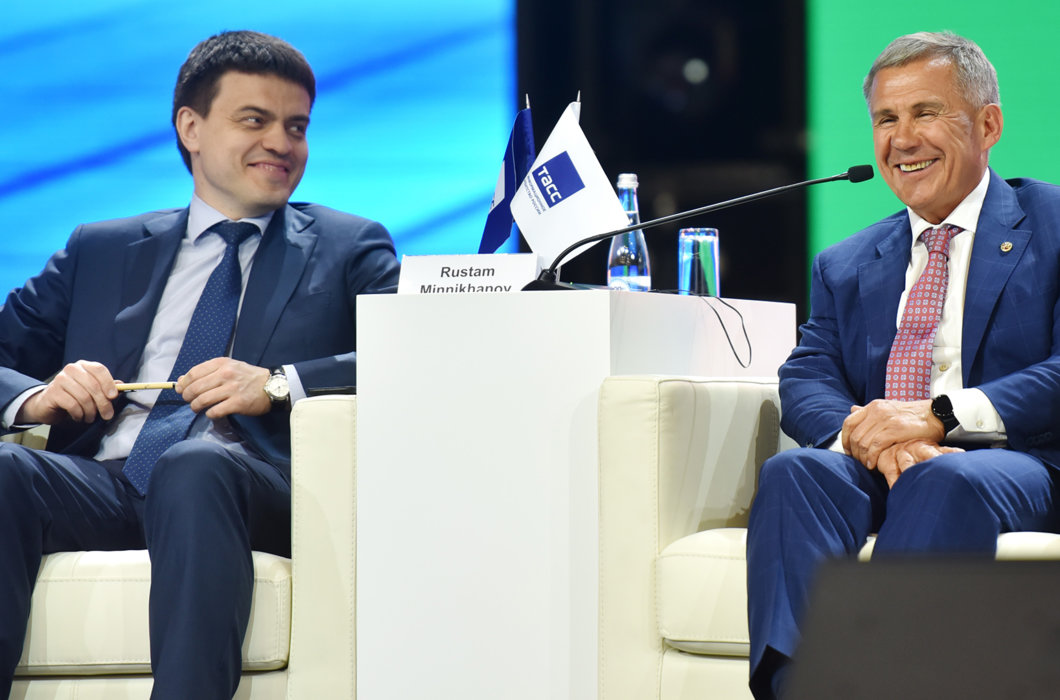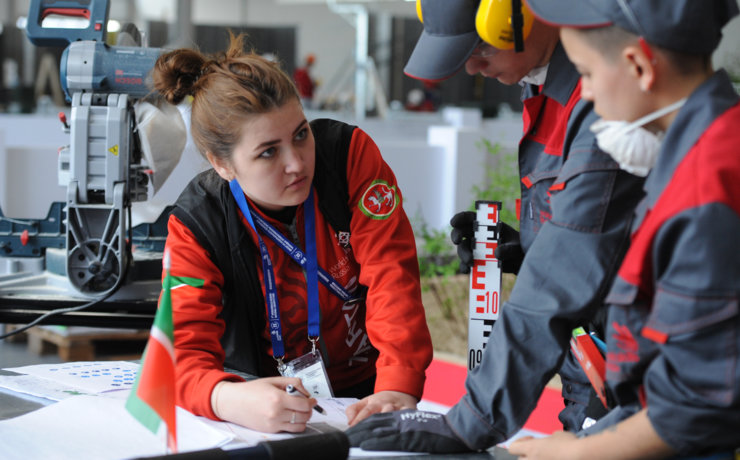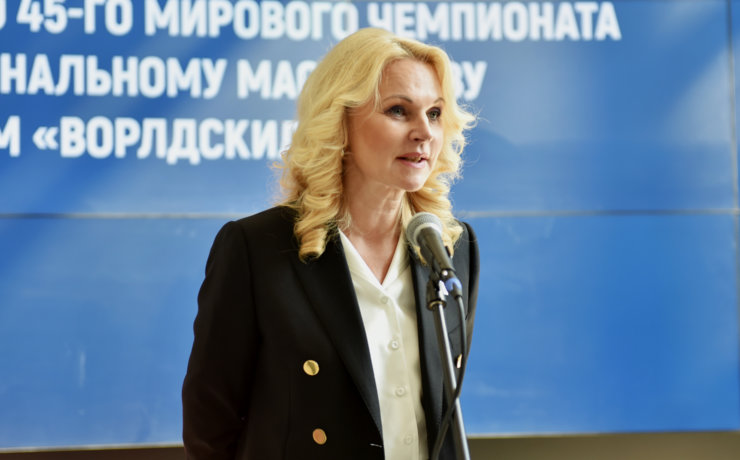A plenary session, titled Professional Update: Educational Ecosystem for New Economy, was held today as part of the final of the 7th National Competition “Young Professionals” (WorldSkills Russia) in Kazan.
Present at the event as speakers were Deputy Prime Minister of Russia for Social Policy, Labour, Health and Pension Provision of the Russian Federation Tatyana Golikova, President of the Republic of Tatarstan Rustam Minnikhanov, Minister of Science and Higher Education of the Russian Federation Mikhail Kotyukov, President of WorldSkills International Simon Bartley, Deputy Minister of Education of the Russian Federation Irina Potekhina, Director General of the Rosatom State Atomic Energy Corporation Alexey Likhachev, Chair of the International Institute of Welding and Director of Training and Technology at Lincoln Electric Carl Peters, Academic Director of the Institute of Education of the Higher School of Economics Isac Froumin and professor of practice at the Moscow School of Management (EAM) in Skolkovo Pavel Luksha. The session was moderated by Director General of the Young Professionals (WorldSkills Russia) Union Robert Urazov.
The plenary session started with presentation of an animated video. It showed a story about a young girl who made a career choice under her parents’ influence. She doesn’t like her current occupation but has no opportunity to do the work she loves because of the lack of skills and education. And this message became the keynote topic of the meeting: what should young people, who live in new economy, want to gain new skills and to try their hand in a new occupation, do when they already have certain bundle of knowledge and experience.
“The first thing that I want to tell you is that you have your whole life before you,” said Tatyana Golikova to people who ever faced such a problem. “Our major task is to develop the educational system and skills and to give both young people and adults the opportunity to improve themselves in these skills. We need to contribute to labour mobility in our country. So that every person could leave the town where they were born, got educated, worked and got fired and move to another city. And quite possibly their skills will be in demand in a new place. Moreover, they can get additional training, additional education that are offered by so many universities and institutes, as well as employers.”
Mikhail Kotyukov mentioned that a person can choose whatever occupation and profession they like. But education, just like any professional occupation, requires responsible approach to oneself.
“If a university provides a high-quality educational programme – and this is what we are striving for – and a student is eager to master this programme, they acquire a basic level of knowledge sufficient for getting their bearings around the world. The second task of higher educational institutions is their approach to skills. A person should be able to apply gained knowledge for solving various practical tasks. And today one of integral parts of the national project is to develop practice-oriented educational programmes when during the training process much consideration is given to practical activities and interaction with a future employer,” said Kotyukov.
Simon Bartley advised to those, who ever encountered the same problem as the female character of the demonstrated video, to never lose their spirit. The President of WorldSkills International mentioned that more and more new opportunities open up for young professionals in vocational skills. “Advice you get from your family members is not always the right one but the knowledge you gained in the past will always come in useful in the future anyway,” Bartley said.
“From my personal and my friends’ experience, I can say for sure that there are real stories when people get one education at 20, get a different one at 30, learn English at 40 and take up a completely new occupation at 50, drawing on the expertise they acquired earlier. These stories are not an exception, they are real,” said Director General of Rosatom Alexey Likhachev.
According to Isac Froumin, life demands the changes. “We see nowadays that success comes not simply to those who have professionals skills but to those who are active and self-sufficing, i.e. are able to take over the responsibility and to change a situation. And I wish that people who win at WorldSkills Competitions had this quality and shared their skills with others,” concluded Froumin.
Press Office of WorldSkills Kazan 2019 Competition Organizer
